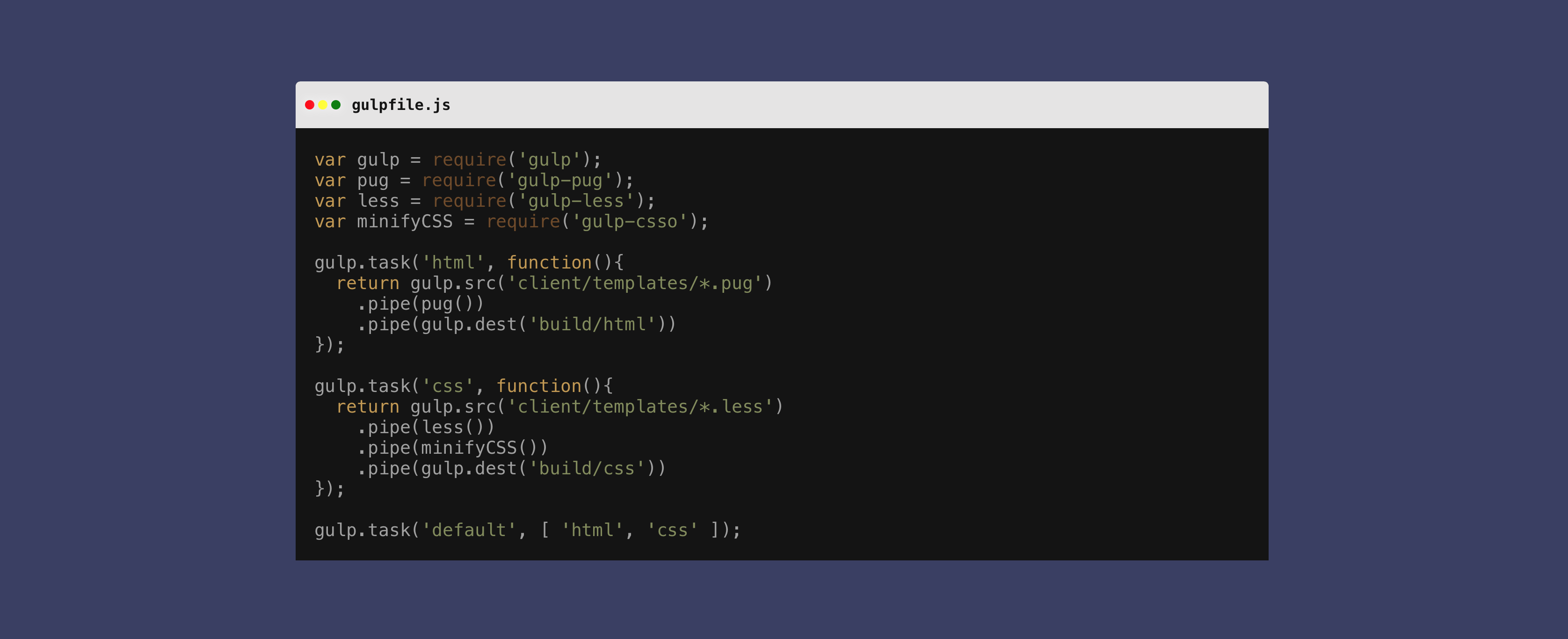As I mentioned a few days ago, I’m using Gulp on a new WordPress project. I like to back up my work every night, and since a lot of WordPress config and customization happens in the WordPress editor and widgets, that means backing up the mysql database as well as the code.
Why not use this newfound tool? Let’s do it.
I did some searching and found Gulp WordPress Backup, but it was overkill for what I wanted. But I saw that it used an npm package named mysqldump, for the export, so I grabbed that and started setting up a new task in gulpfile.js:
// add mysqldump as a dependency var mysqlDump = require('mysqldump'); // dumpDatabase gulp.task('dumpDatabase', () => { return new Promise((resolve, reject) => { mysqlDump({ host: 'localhost', user: 'user', password: 'pass', database: 'wp_database', dest: 'backup.sql' }, (err) => { if (err !== null) return reject(err); }); }) .catch((err) => { console.log(err); }); });Next step: Defining the filename. I just wanted to use today’s date because I intend on running this at the end of each work day. Since gulp is all javascript, this is easy:
var today = new Date(), dd = today.getDate(), mm = today.getMonth()+1 //January is 0! yyyy = today.getFullYear(); if(dd<10) { dd = '0'+dd } if(mm<10) { mm = '0'+mm } today = mm + '-' + dd + '-' + yyyy;Add this to the gulp task and you are good to go!
gulp.task('dumpDatabase', () => { var today = new Date(), dd = today.getDate(), mm = today.getMonth()+1 //January is 0! yyyy = today.getFullYear(); if(dd<10) { dd = '0'+dd } if(mm<10) { mm = '0'+mm } today = mm + '-' + dd + '-' + yyyy; return new Promise((resolve, reject) => { mysqlDump({ host: 'localhost', user: 'user', password: 'pass', database: 'wp_database', dest: 'SQLBackups/' + today + '.sql' // Outputs to the folder named SQLBackups and uses today's date as the filename. }, (err) => { if (err !== null) return reject(err); }); }) .catch((err) => { console.log(err); }); });Make sure you add mysqldump to your project’s package.json, or at least run npm install mysqldump before using!


Leave a Reply